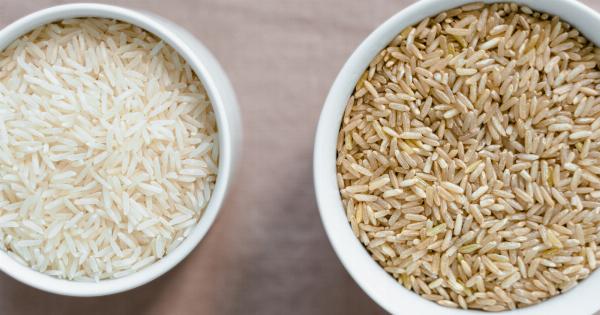Ulcerative colitis is a chronic inflammatory bowel disease (IBD) that causes inflammation and ulceration of the inner lining of the large intestine (colon) and rectum.
It is characterized by episodes of flare-ups and remissions, resulting in various gastrointestinal symptoms.
Symptoms of Ulcerative Colitis
The symptoms of ulcerative colitis can vary in intensity and include:.
- Abdominal pain and cramping
- Diarrhea, often with blood or pus
- Rectal bleeding
- Frequent bowel movements
- Urgency to have a bowel movement
- Inability to defecate despite urgency
- Weight loss
- Fatigue
- Fever
- Loss of appetite
Causes of Ulcerative Colitis
The exact cause of ulcerative colitis is unknown, but several factors are believed to contribute to the development of the disease. These include:.
- Genetics: People with a family history of ulcerative colitis are at a higher risk of developing the condition.
- Immune system dysfunction: An abnormal immune response can trigger inflammation in the colon.
- Environmental factors: Certain environmental factors, such as diet and stress, may play a role in the development of ulcerative colitis.
Diagnosis of Ulcerative Colitis
Diagnosing ulcerative colitis requires a thorough evaluation of the patient’s medical history, physical examination, and various diagnostic tests. These tests may include:.
- Colonoscopy: This procedure allows the doctor to examine the lining of the colon and rectum with a flexible tube equipped with a camera.
- Biopsy: During a colonoscopy, small tissue samples may be taken for laboratory analysis.
- Blood tests: Blood tests can help determine the levels of inflammation in the body and rule out other conditions.
- Stool sample analysis: Studying a stool sample can provide valuable information about the presence of infection or inflammation.
- Imaging tests: X-rays, CT scans, or MRI scans may be used to visualize the intestines and assess the severity of the disease.
Treatment Options for Ulcerative Colitis
While there is currently no cure for ulcerative colitis, various treatment options aim to manage symptoms, induce and maintain remission, and prevent complications. These treatments may include:.
- Medications: Anti-inflammatory drugs, immune system suppressors, and symptom-relieving medications can help control inflammation and alleviate symptoms.
- Dietary changes: Certain dietary modifications, such as avoiding trigger foods or following a low-fiber diet, may help reduce symptoms.
- Lifestyle changes: Stress management techniques, regular exercise, and adequate rest can contribute to overall well-being and symptom management.
- Surgery: In severe cases, surgical removal of the colon and rectum (colectomy) may be necessary to alleviate symptoms and improve quality of life.
- Alternative therapies: Some individuals may find relief through complementary and alternative therapies, such as acupuncture or herbal remedies. However, the effectiveness of these treatments varies.
Potential Complications of Ulcerative Colitis
Ulcerative colitis can lead to various complications, including:.
- Severe bleeding
- Persistent diarrhea
- Perforated colon
- Inflammation of the skin, joints, and eyes
- Increased risk of colon cancer
- Malnutrition and nutrient deficiencies
Managing Ulcerative Colitis
Living with ulcerative colitis requires proper management and ongoing care. Here are some tips to help manage the condition:.
- Keep a symptom diary: Tracking symptoms and identifying potential triggers can help manage flare-ups.
- Follow a balanced diet: A dietitian can provide guidance on foods to include and avoid based on individual needs.
- Take prescribed medications as directed: Adhering to medication regimens can help control inflammation and prevent relapses.
- Engage in stress management activities: Stress can worsen symptoms, so finding stress-relief techniques, such as meditation or yoga, is beneficial.
- Stay informed: Educate yourself about ulcerative colitis, its management, and new treatment options.
- Seek support: Joining support groups or reaching out to healthcare professionals can provide emotional support and valuable information.
- Attend regular check-ups: Routine follow-up visits with the healthcare team are essential to monitor disease progression and adjust treatment plans as needed.
Conclusion
Ulcerative colitis is a complex and challenging condition, but with proper management and treatment, individuals can lead fulfilling lives.
It is important to work closely with healthcare professionals and seek support when needed to navigate the uncertainties associated with ulcerative colitis.


























